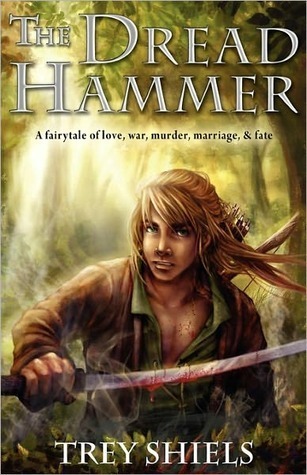The Dread Hammer (Stories of the Puzzle Lands), by Linda Nagata

In 2016 I started reading The Dread Hammer and almost immediately gave up. It felt like an adolescent female fantasy about a wild man in the woods. In truth, it may be that, but it had more complexity once I ended reading it. The problem, though, was that I felt always out of phase with what was happening in the story.
So we meet this girl running from her father and the man she was forced to marry and meeting this man who could turn into smoke and kill anyone who immediately takes a fancy on her and, very seductively and romantically, kidnaps her and makes her his wife. Then there is this whole history of the evil militaristic misogynistic empire at the border of a smaller country, protected by fierce warriors and ancient magic. And then stuff happens, which oscillates between very dark magical blackmail horror and rather silly and random romances and clumsy politics. Honestly, it was like someone was trying to write teen Irish Tarzan, but for children.
Somehow, when I was getting chills about the horror of a situation and preparing for the worst, nothing actually happened. When I was chilling and not expecting anything interesting to happen, something did happen. But mostly everything felt random. Add to this that the story doesn't actually end in any way with the book, and I felt little satisfaction reading it and even less getting to a completely bland cliffhanger. Or rather, the end of the first volume of a story.
Now I feel like I've DNF'd the book twice, even if I did manage to get to the end and for some lengthy parts of the book I was actually invested in the characters. I liked The Red series by Linda Nagata/Trey Shiels, but I won't continue with this. And why the hell was it called The Dread Hammer? It has absolutely no relevance to the story for now.
Bottom line: not a very good book, but it had a lot of potential, which is sad. I will raise my original rating with a star, but I can't recommend it to anyone.













